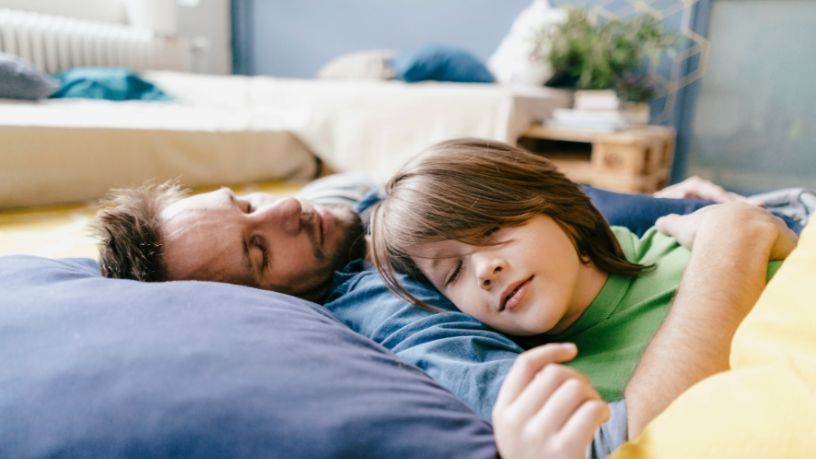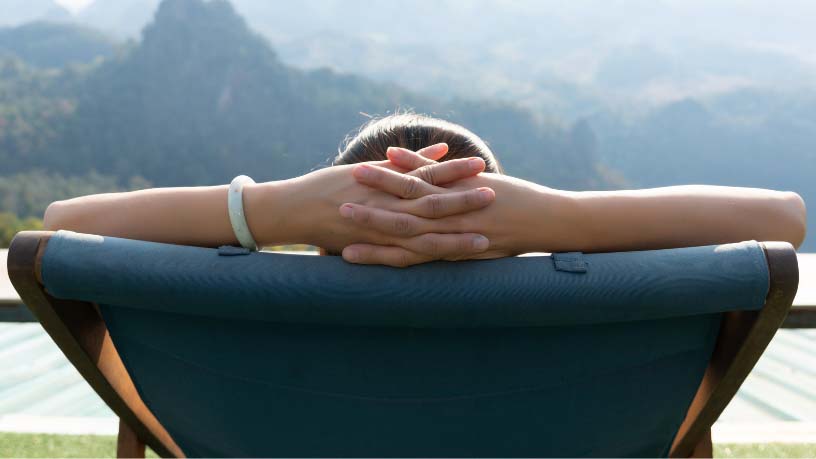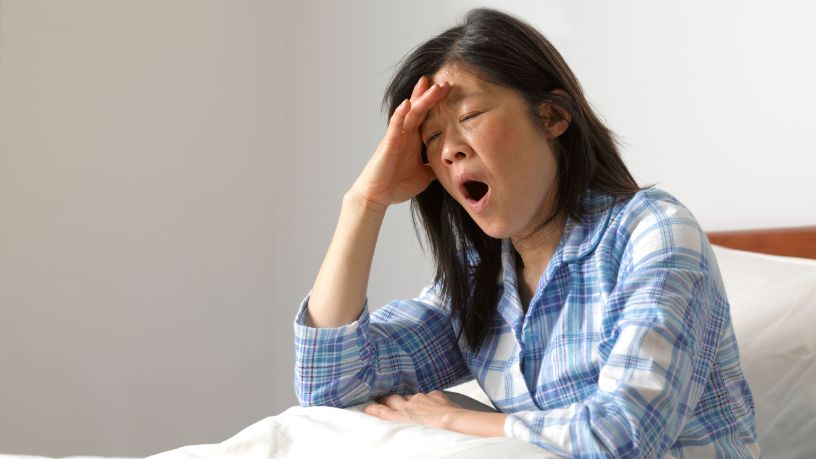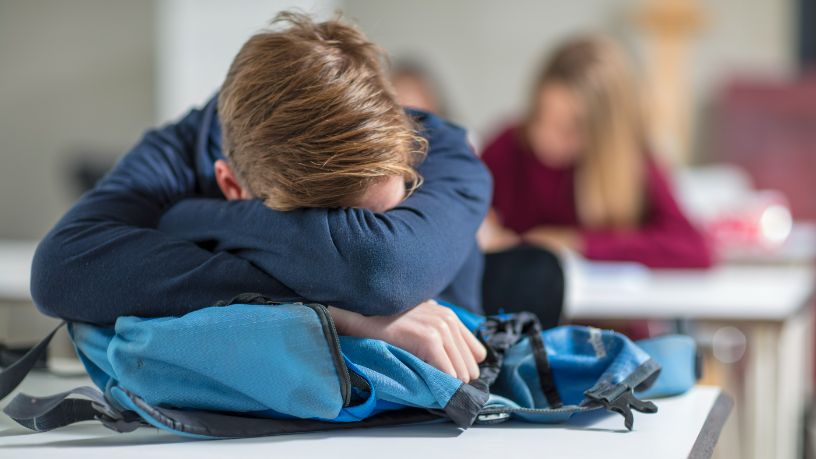Natural fabrics are great options for your pyjamas and sheets as they tend to be light and can help soak up sweat.
Key takeaways
Make your bedroom a cool and refreshing sanctuary throughout the day.
Eat lightly and be sure to stay hydrated.
Does hot and humid weather cause you to toss and turn, making a decent night’s sleep almost impossible?
A 2019 study revealed the ability to fall and stay asleep is determined by overall temperature.1 According to the study, when your body temperature is high during the night, overall sleep duration is lower. With the ideal sleeping temperature being around 17°C to 19°C, it’s no wonder the heat and humidity of summer can sabotage a good night’s rest.
Here are some suggestions for keeping cool and sleeping well when it’s hot outside.
1. Take a shower or bath before bed
Having a cool or lukewarm shower (or bath) before you turn in for the night will not only remove any excess sweat, but also help cool your body and reduce the temperature of your skin.2
2. Cool down the bedroom
When it’s hot outside, it’s time to turn your bedroom into a dark den. You can reduce the amount of heat filtering into your home by closing all blinds and curtains when the sun is at its most intense.3
3. Soak your feet
If you’re feeling excessively hot, soaking your feet in cold water for 10 minutes prior to bed can help to cool you down. Wetting your hair is another option.
4. Re-position your fan
You might think having a fan facing you is the most effective way to cool down, but if pointing it towards an open window will draw hot air out of the room and pull cooler air in.
If you have a ceiling fan, make sure it’s in cooling mode (spinning counterclockwise) to create a draught. If it spins the other way (winter mode) it will draw cooler air up, away from you.
5. Use ice packs
Place ice packs or cool wet cloths to your armpits or groin for a few minutes. These are the areas where your blood flows closest to the surface of your skin and will help to cool down your whole body.
6. Wear and sleep in natural fabrics
What you wear to bed can a have direct impact on how you sleep. Research has shown that heat exposure from bedding and clothing increases wakefulness and decreases slow wave and rapid eye movement sleep4, affecting the overall quality of your sleep.
Consider sheets and pyjamas made from natural fibres such as linen and cotton or plant-based ones such as bamboo and rayon. They’re light, breathe better than synthetic fabrics, and will help soak up excess sweat.
Cooling mattress toppers are another option. They have temperature-regulating and sweat-wicking properties to help you cool while you sleep.
7. Stay hydrated
The more you sweat, the more dehydrated you will become, even when you sleep. To help temperature regulation during the night, ensure you drink plenty of water during the day.
And while we’re on the topic of drinking, consider reducing your alcohol intake as it is dehydrating and increases nocturnal sweating.5 It’s also said to be an inhibitor of deep sleep.
8. Eat light
When the heat has got the better of you, it’s best to avoid hard-to-digest foods before bedtime, particularly those that are sugary, spicy, or high in fat.
A 2016 study revealed that people who consumed a higher intake of saturated fat were more likely to have lighter, less restorative sleep.6 So switch to lighter foods during the warmer months to help promote restful sleep.

At Bupa, trust is everything
Our health and wellbeing information is regularly reviewed and maintained by a team of healthcare experts, to ensure its relevancy and accuracy. Everyone's health journey is unique and health outcomes vary from person to person.
This content is not a replacement for personalised and specific medical, healthcare, or other professional advice. If you have concerns about your health, see your doctor or other health professional.
1Zheng, G., Li, K., & Wang, Y. (2019). The effects of high-temperature weather on human sleep quality and appetite. International Journal of Environmental Research and Public Health, 16(2), 270.
2Healthy WA. (2022). Heatwaves – be prepared for extreme heat. Government of Western Australia, Department of Health.
3Good Living. (2024). 10 tips to keep you and your house cool this summer. Government of South Australia, Department for Environment and Water.
4Okamoto-Mizuno, K., & Mizuno, K. (2012). Effects of thermal environment on sleep and circadian rhythm. Journal of Physiological Anthropology, 31(1), 14.
5Altena, E., Baglioni, C., Sanz-Arigita, E., Cajochen, C., & Riemann, D. (2022). How to deal with sleep problems during heatwaves: practical recommendations from the European Insomnia Network. Journal of Sleep Research, 32(2).
6St-Onge, M. P., Roberts, A., Shechter, A., & Choudhury, A. R. (2016). Fiber and saturated fat are associated with sleep arousals and slow wave sleep. Journal of Clinical Sleep Medicine, 12(1), 19-24.
You might also like...
How important is sleep?
Making sure you have a good night's sleep is one of the best things you can do for your health and wellbeing.
Breaking the stress-sleep cycle
A good night’s sleep is one of the best ways to manage stress, but ironically, it’s incredibly difficult to drift off when you’re stressed.
Everything you need to know about sleep apnoea
Sleep apnoea is a common sleep disorder, though it is often under recognised and under diagnosed. Find out how it might affect you or your partner.
Sleep solutions for tired teens
If your teenager is staying up late and wanting to sleep the day away, you’re not alone. Discover some potential sleep solutions for tired teens.





